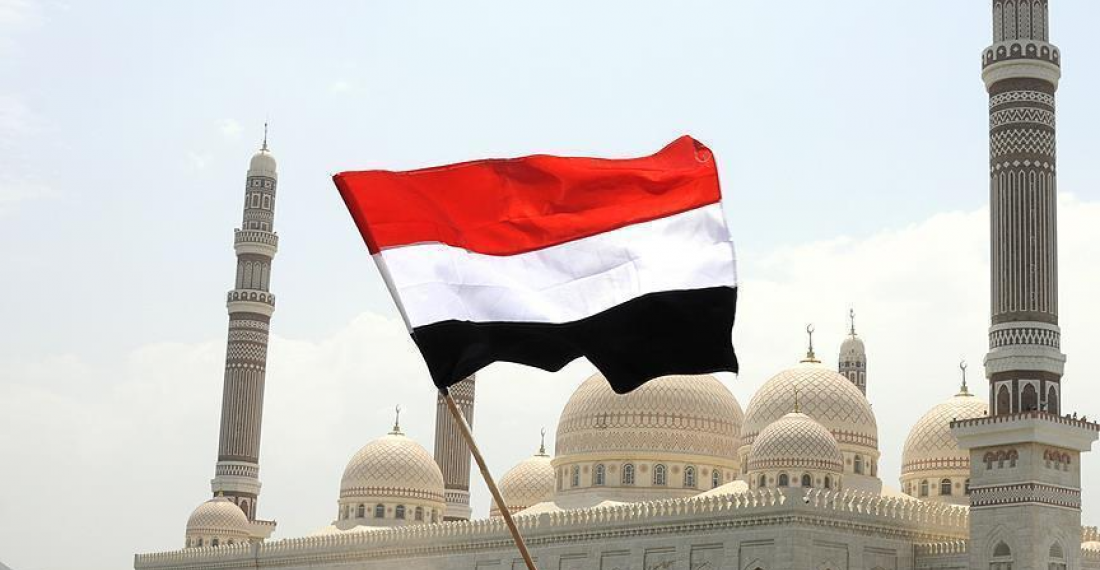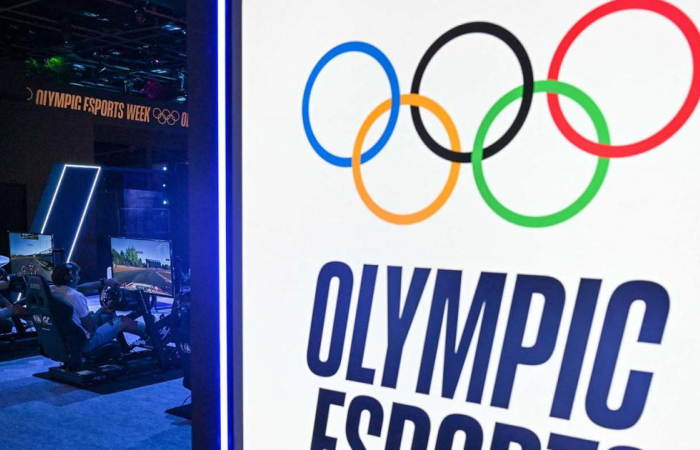Click here to read this article in the original Arabic.
After the turmoil ensuing from the Houthi take-over of Sanaa and other parts of the country, displacing the legitimate and internationally recognised government, and after the subsequent intervention by the international coalition, leading to widespread airstrikes on many parts of Yemen, Yemenis started to question the future prospects of their country.
Like in any state facing chaos, those seeking personal gains exploited the situation, often hiding behind political affiliations. There was, however, and still is, a lack of a national project, or at least a national vision, that can guide the country out of the present chaos.
When we Yemenis talk about such a project, it is because we feel the profound destructive effect of the Houthi movement on the one hand, and the lack of a vision for the way forward on the other. The depth of the problem of the Houthi project can be felt across Yemeni society, whether it be in our homes, among our relatives, friends and acquaintances, or in our villages, neighbourhoods, and cities.
Yemenis must stop addressing the issue of the future of their country in a shallow way. We must face up to reality and accept what is required of us by our national and historical duty. The only action that can help us towards a positive outcome is to take responsibility. The solution to Yemen’s problems lies among Yemenis themselves. But the absence of a socio-political formation well-rooted in society is stopping us from transforming the conflict into a victory. On the contrary, the absence of a national project that is supported by a wide range of socio-political components intensifies and prolongs the conflict.
There is a need for an alternative vision for national salvation that counters the Houthi project. This process is hindered by some of the political actors currently influential in Yemeni society.
The absence of a vision for national salvation is compounded by a poor intellectual debate
Poor intellectual debate is one of the seriously damaging consequences of the lack of this national project. Yemeni intellectuals at all levels have been in a state of shock, lost in a sea of logical paradoxes created by the complex political, social and military circumstances of Yemen. This is reflected in political, intellectual, cultural, media and artistic output, as most of what has been produced is of low quality and lacks a sense of purpose. In addition, this output did not carry any sense of direction towards the future, let alone provide the discourse for a national project that addresses future aspirations and establishes a foundation for better social awareness that can bring the Yemeni people's struggle to an end.
Perhaps one of the most important reasons for this poor intellectual debate lies in the fact that basic grassroots try to reflect the agenda of regional actors involved in Yemen, thereby leading to a lack of a national identity or agenda. The result is complete chaos in the cultural, political, media, intellectual and academic arenas which were already struggling in the framework of a weak state, and have been further weakened by the Houthi rebellion.
We could obviously delve further into the weaknesses of the Yemeni state and what makes for a strong and functioning state more broadly, but the most important point to take here is that the legitimate Yemeni government and its supporting national base was and is performing poorly on many levels. In addition to this, rampant corruption has resulted in the state discharging only its most basic functions. There cannot be any real salvation for Yemen without highlighting such weaknesses in the Yemeni state and society, and subsequently working to address them.
Secondly, the Arab coalition was in no better shape than the Yemeni state as it made several mistakes on professional, managerial and logistical levels. These mistakes were exploited by the enemies of Yemen and poorly addressed by the coalition as their response oscillated between justification, denial and ignorance. This has led to repeated mistakes resulting in the international media viewing the coalition’s action as aggression, a rhetoric similar to that used by the Houthi rebel group.
Thirdly, the Houthi movement poses an inherent danger to Yemen. The Houthi tradition is an ideological project that seeks to uproot culture and change society from head to toe. This project is supported by a regional power, Iran, which empowers it to expand, spread chaos and eliminate enemies. This project has found fertile ground in Yemen.
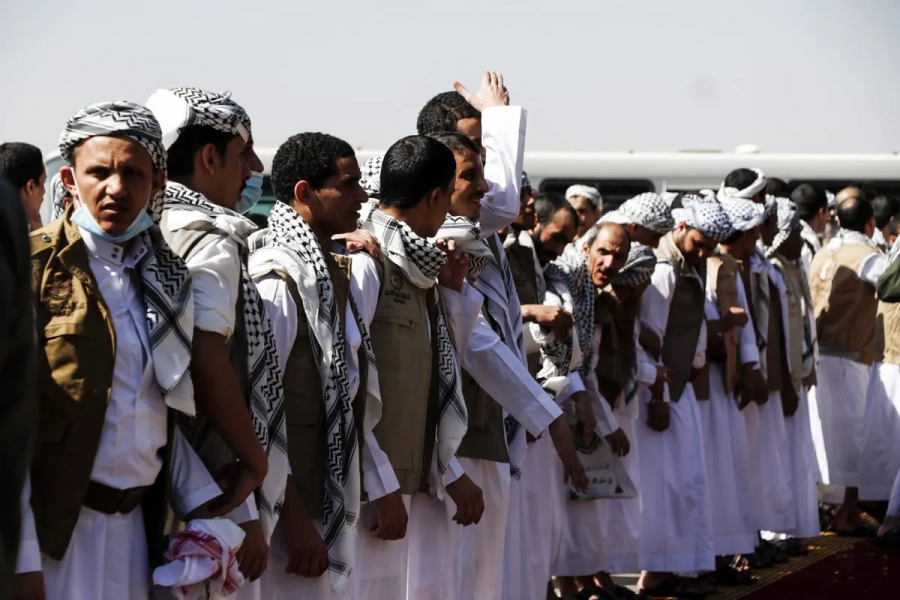
The three main parties in Yemen are ill-equipped to formulate a national project of salvation
Before exploring what could be an alternative vision for Yemen, we have to be honest with ourselves and recognise the precarious situation we are in and the inadequacy of the actors involved in the local Yemeni scene. Here I want to seriously question the ability of our three major parties to provide, shape, develop and pursue an alternative vision for Yemen.
The Southern Transitional Council (STC), a new component formed in 2017 advocating South Yemen secessionism and backed by the UAE, has presided over several undisciplined criminal abuses. I personally have a long, bitter and harsh experience of them.
The STC has irregular, chaotic transgressions, without a leadership able to control abuse and brutality. Despite this it is impossible to deny its legitimate cause, or the issue of the South, the historical mistakes that were committed as a result of it, and the right of the South to be an independent political geography. The biggest problems of the South come from its elite, who were unable to create a project that offers a reasonable and tangible solution for the Southern issue.
The General People’s Congress is a political, tribal, regional, and military formation that has penetrated most aspects of life in Yemen since its foundation, and has acted as the largest party in the government for many years. The major problem for this component is that it suffers from a crisis of thought, ideology and political identity. In addition, its politics are chaotic, random and improvised, which is among the reasons why we are experiencing what we are today. There are currently two branches of the party: the Sanaa branch under the de-facto authority; and the foreign branch supported by the UAE. Both of them play the game of blaming the other parties for today's destruction of Yemen.
The Islah Party is one of the main actors in the political history of Yemen and has a religious background, led by personalities with strong tribal, familial and religious roots. The party functions more as a balancing act rather than being a political project in itself. Whether it was with the ruling party or in opposition, the party failed to reach wider segments of Yemeni society. It has neither goals, nor legitimacy, nor achievements in the political arena. Its actions have disassociated itself from the conscience of the ordinary Yemeni, and it is detached from the reality of Yemeni society. The emergence of a wide class of super-rich Islamic bourgeoisie from the leaders and members of the Islah Party increased their distance from the people and their concerns, looking down from their ivory towers without any sense or awareness of the reality of Yemeni society. Instead, all their efforts were confined to directing and mobilising their active members. Despite being the party that has paid the highest price in the battle to defend the homeland, terrible contradictions between its ideological rhetoric, political performance and real-life interaction with the general public have undermined it.
Reviving the spirit of the 26 September revolution
Given this corrupt and chaotic political scene, how, then, can we create a national vision for Yemen? It is clear that the roots of the Houthi movement need to be removed from the Yemeni scene because of its destructive effects on future generations. How this can be done is simple. There is an ancient spirit of struggle in Yemen that needs to be revived and reinstalled in our tribesmen, armed forces and the general public who stand against the Houthis. In order to remove the Houthi movement, there need to be institutions that adopt and take forward this vision on behalf of the nation, as well as a comprehensive national intellectual organisation as an incubator for and investor in all these efforts.
This ancient spirit of struggle was most recently expressed in 1962 during the 26 September revolution. The ideals of that revolution serve as the best basis for a national spirit that would in turn serve to create an alternative vision for Yemen. We must therefore stop and seriously analyse how to create a comprehensive political force based on the ideals of the 26 September revolution that results in a final victory. Only then can a vision emerge that can at least match the opponent’s in its intellectual, ideological and organisational cohesion. Engaging in such a discussion is important and needs broader, comprehensive and more specialised investigations and studies. There is no better time for it than now. A major responsibility falls on the collective awareness of the elites and intellectuals who should move towards a new stage of struggle and joint action, utilising the awareness, mechanisms, logic, thought and mood of the overwhelming popular base that rejects the Houthi tradition and its might.
This national project of salvation should include a charter of honour between all the free and honourable national forces affiliated with this formation, working as one body and freezing all political, partisan and regional differences that currently divide the various political components. At the heart of this system must be an investment in the ideals of the 26 September revolution. Re-adopting this ideology will help create and deepen fractures within the Houthi movement, which would then help further the alternative vision for Yemen and its people.
Fighting the Houthi movement can work on two fronts. Firstly, dynamically and organisationally, a careful and sensitive study must be made of the nature of the Houthis’ tribal, social and religious connections with businessmen, merchants and other radical traditional centres of power that support the Houthi movement. The movement for salvation needs to offer direct guarantees and use the right messages to assuage their fears and protect their interests in ways that are compatible with the principles of freedom, dignity and decent living protected by state institutions and a rule of law that uphold their rights and freedoms.
Secondly, intellectually and ideologically, there needs to be a review of the entire legitimate government’s previous media, political and cultural performance to see which tools for fighting the Houthis work, and which are counterproductive. To give an example, the term “political Hashemism” has been used on many occasions but unfortunately has only fuelled negative sentiments due to its sensitivity and racist connotations against a particular social group that does not precisely define the Houthi movements or its bases of support.
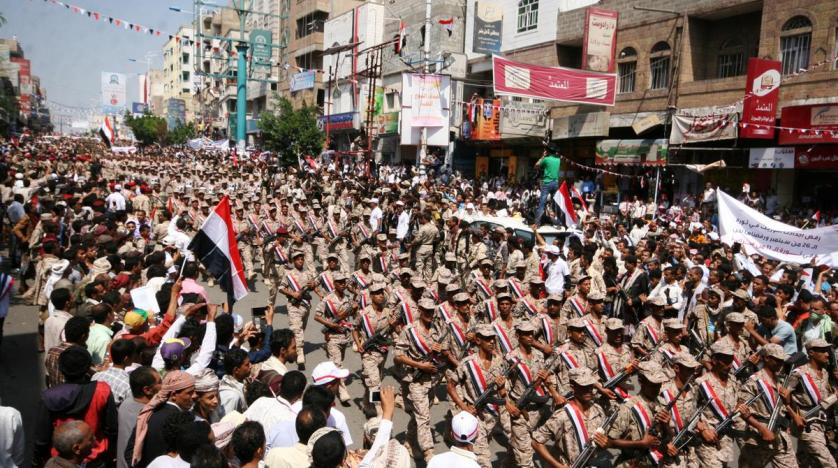
Recognising Houthi strengths, and exploiting Houthi weaknesses
Fighting the Houthis is no easy task, and it needs to be taken seriously. Houthis have a complex religious, ideological, ethnic and regional dimension. Its impact is broad and deep, it operates via several subsidiaries, and it plays a decisive role in moving, dismantling and linking major alliances within Yemeni society. This component is to some extent connected to doctrine, ideology, and a network of strong tribal alliances in certain areas throughout history that have not been broken up to this day. That which makes them so interconnected is their shared fears and threats. Both the past and the present also tell us that the Houthis impose an intellectual delusion on significant groups of tribesmen, especially in their historical areas of influence, pervaded by an ignorance that allows the Houthis to operate without any strong ideological and organisational competitor.
Despite their complexity, there is no justification for a racist discourse against the Houthis that uses the term “political Hashemism”, and that targets them on the basis of background. In fact, this discourse provides the Houthis with all the reasons for union, solidarity, joint action and the expansion of alliances among loyalists in a favourable social environment. Avoiding this negative rhetoric and adopting a balanced approach in the fight against the Houthis is necessary for the anti-Houthi camp to succeed. Looking at history also tells us that Hashemism as a political ideology never existed, but, on the contrary, it is an imagined perception among those who oppose the Houthi ideology. There are many Hashemites engaged with different socio-political components of Yemen, and describing the Houthis purely as political Hashemites is therefore inaccurate. In addition, not all Houthis are Hashemites, despite the core family being Hashemite.
Faced with strong rhetoric and intellectual competition, the Houthi movement will decline
That being said, there is no path towards peace better than a permanent ceasefire agreement. In fact, violence can only worsen the situation in Yemen. The coalition should create a ground for a national rebuilding that adopts long-term, sustainable, political, cultural, artistic and social action aimed at dealing with the Yemeni people as the first and last hope of uprooting the Houthi movement. If the reasons for conflict are ended through dialogue and reconciliation, the Houthis will lose the most important justifications for their existence and actions. An alternative fight against the Houthis should, on the one hand, exploit the deep differences between Houthi leaders and the movement's wings to create division within the movement. There are many differences of a historical nature, as well as competition for influence and a huge conflict of commercial interests among the Houthi leadership. These can be exploited to create permanent splits within the movement.
On the other hand, the popular movement and the popular resistance against the Houthis should be consolidated under the umbrella of a unified vision of national salvation. Popular resistance is inevitably coming. The wrath of years of war and the consumption of poor intellectual rhetoric were two reasons for the people’s silence, and it provided the Houthis with many reasons for strength and empowerment. But the glaring truth is that, with the exception of a deceived minority - and unfortunately, most of them are teenagers and ignorant youth - the general intellectual mood among the vast majority of Yemeni people is still against the Houthi ideology. Here again comes the importance of a national rhetoric that is strong, concise and directed against the Houthi ideology. Once strong discourse and intellectual arguments can match those of the Houthis, combined with the strength of popular resistance and enabled by Houthis' internal divisions, the movement will eventually decline.
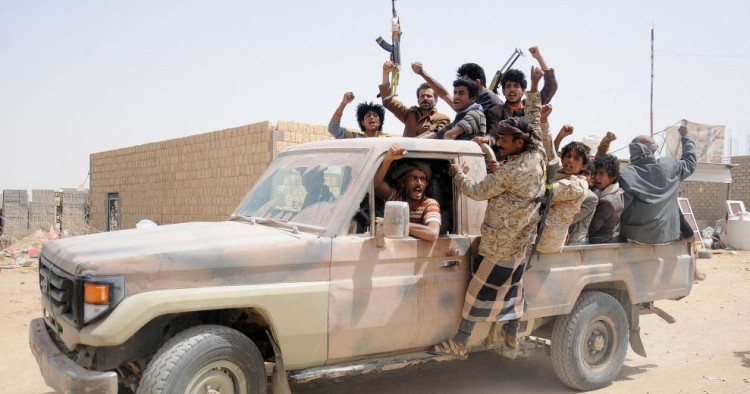
The current government’s approach is not working, and is misguided
Unfortunately, at the present moment, the government is using a failed rhetoric and a failed approach. The government believes that the Yemeni people will revolt against hunger and is therefore imposing an economic lockdown on areas under Houthi control in hope of an anti-hunger revolution. But this approach has only aggravated people's suffering rather than increasing anti-Houthi sentiments within and weakening its appeal to Yemeni people. This reflects the lack of a real ideology of free thought, national liberation, culture and human values that believe in justice, freedom, and the right of every human to a decent life. Social sciences tell us that forced hunger was never a strong motivation for a successful uprising; a revolution of the hungry is nothing but a momentary unconscious revolution that subsides in the blink of an eye. A revolution based on strong, logical and convincing thought and culture, however, with goals of liberation, freedom and a better future, is more likely to overthrow injustice and replace it with a just and rational rule. The government therefore needs to ensure the fundamental necessities of a decent life, such as providing good salaries and basic services. This would be a key factor in the success of any future uprising against the Houthis.
In the end, Yemen needs a new approach, a movement of a different kind, and a new formula and strategy that adopts a different logic. This alternative vision should ensure that Yemen and its survival are the primary goal and objective, giving all Yemenis a free and dignified life in a truly democratic republic, neither appeasing any party or consumerist thought, nor prioritising any internal or external interests over the interests of Yemen and its future generations.



